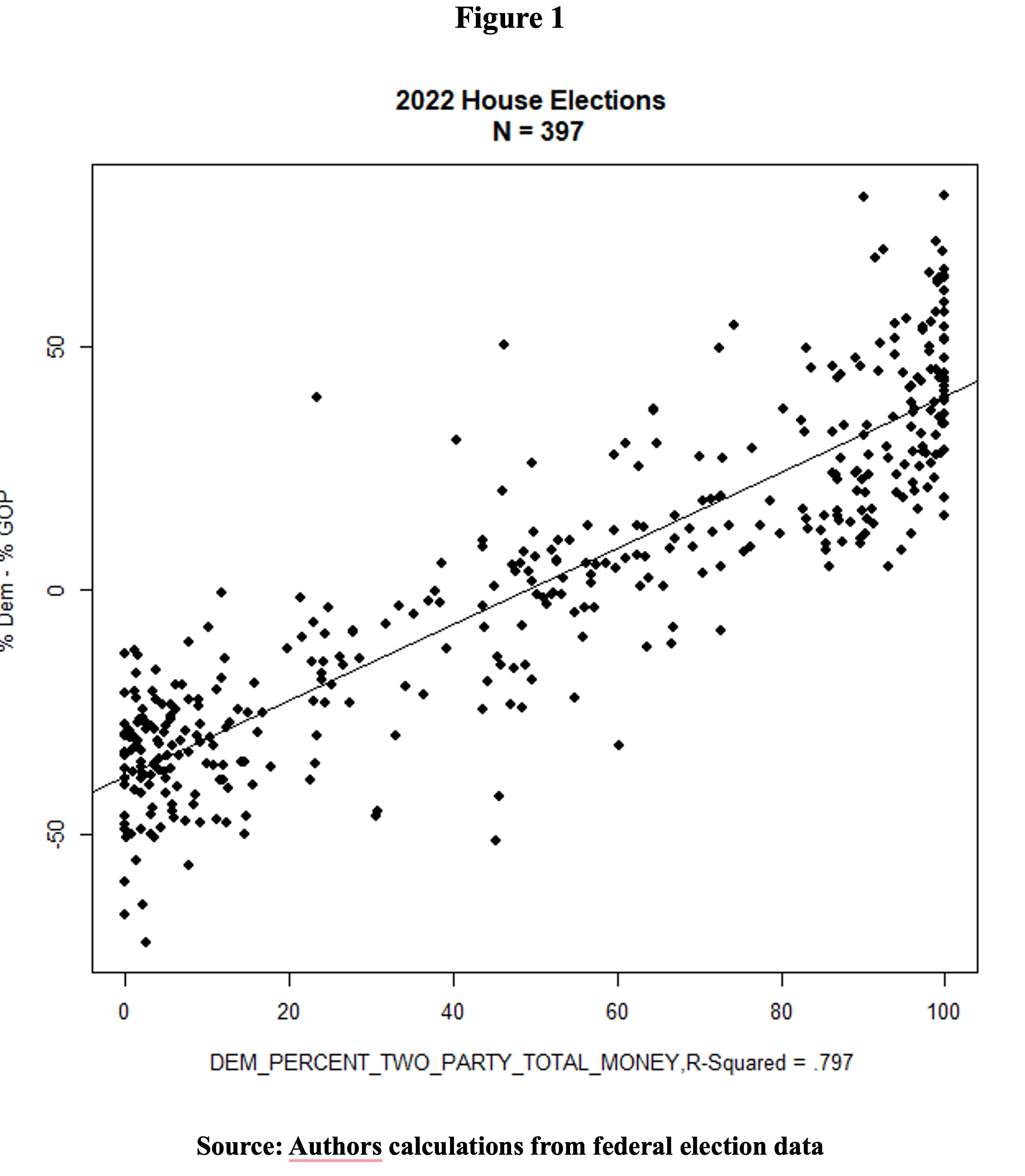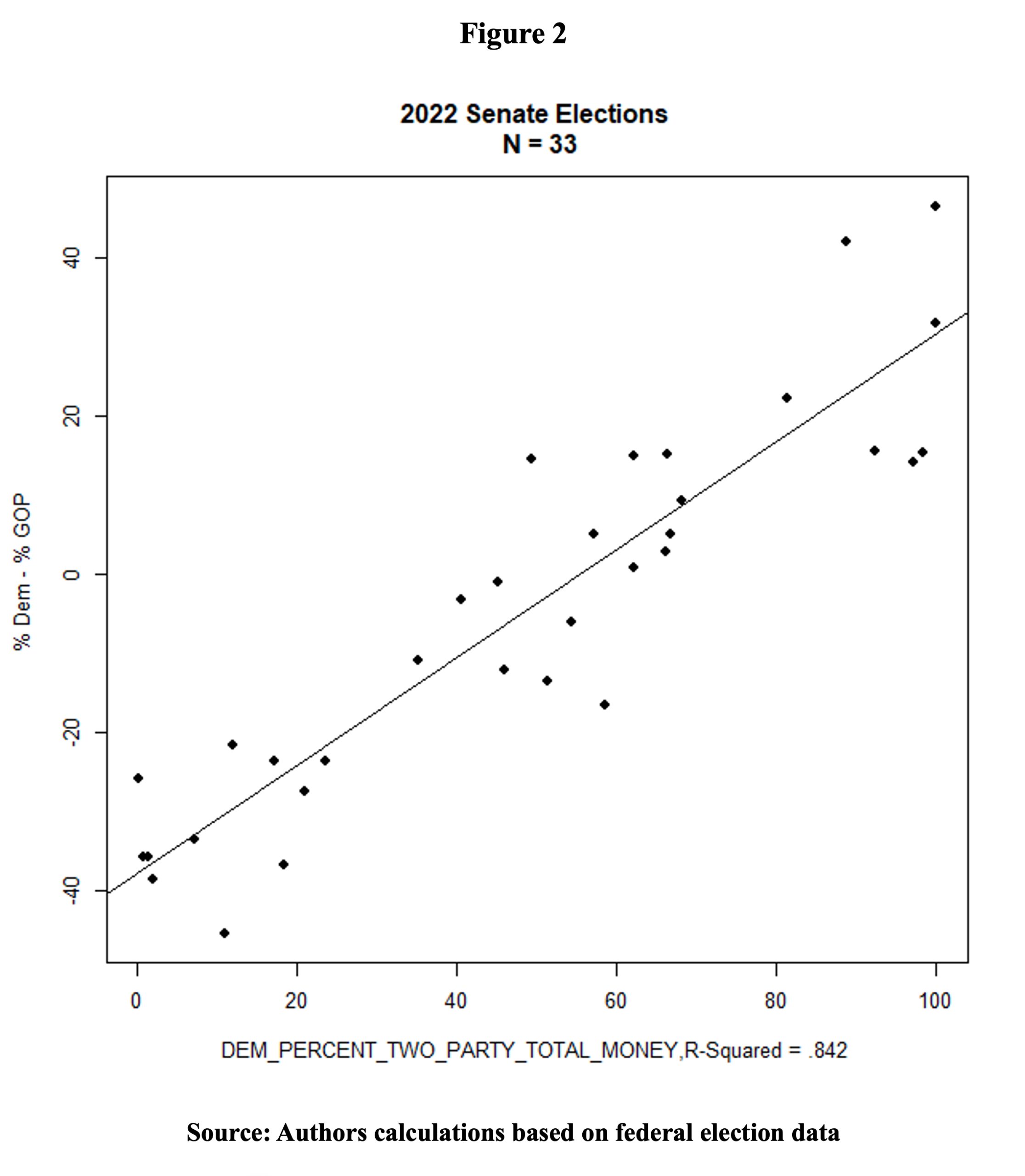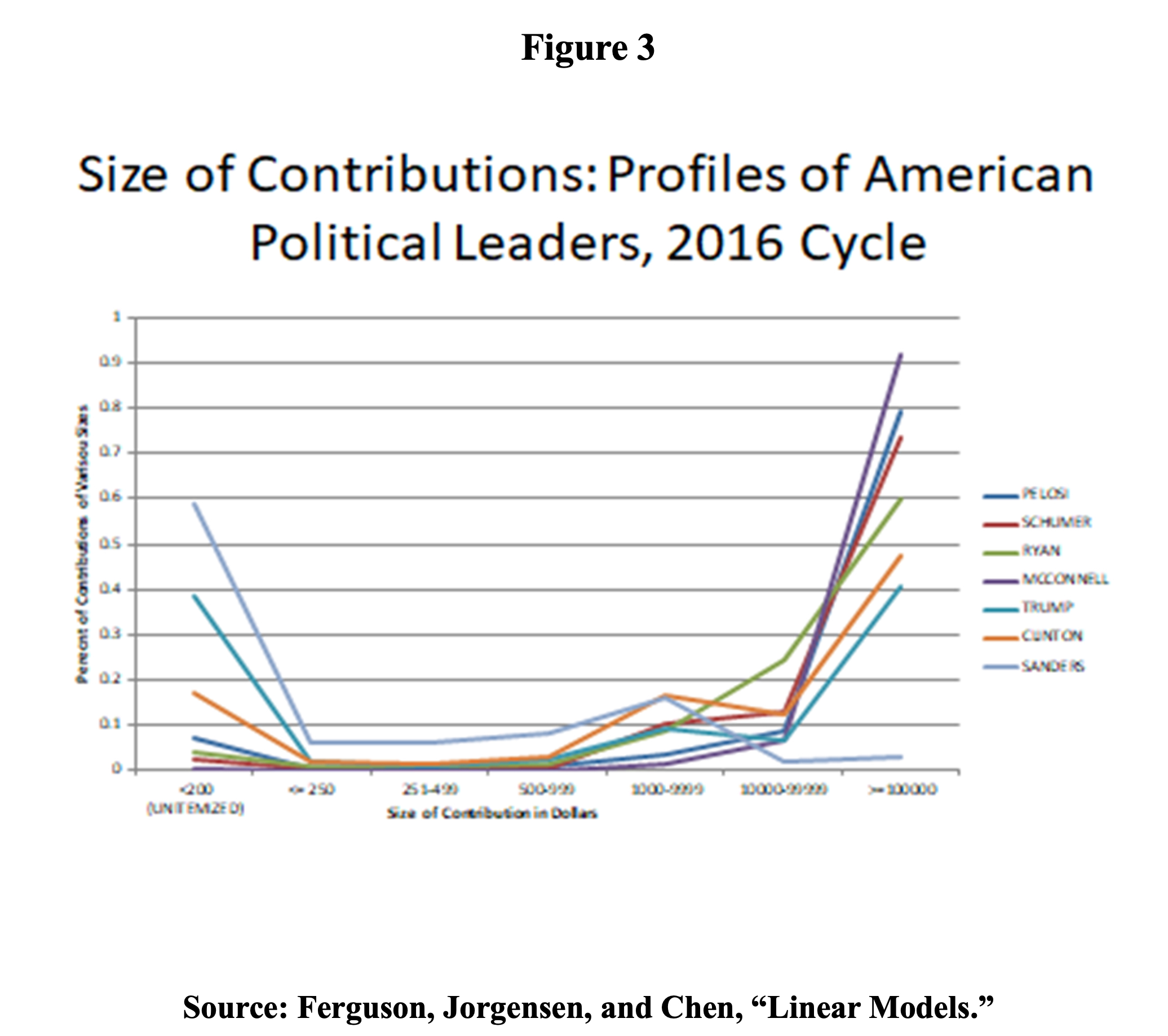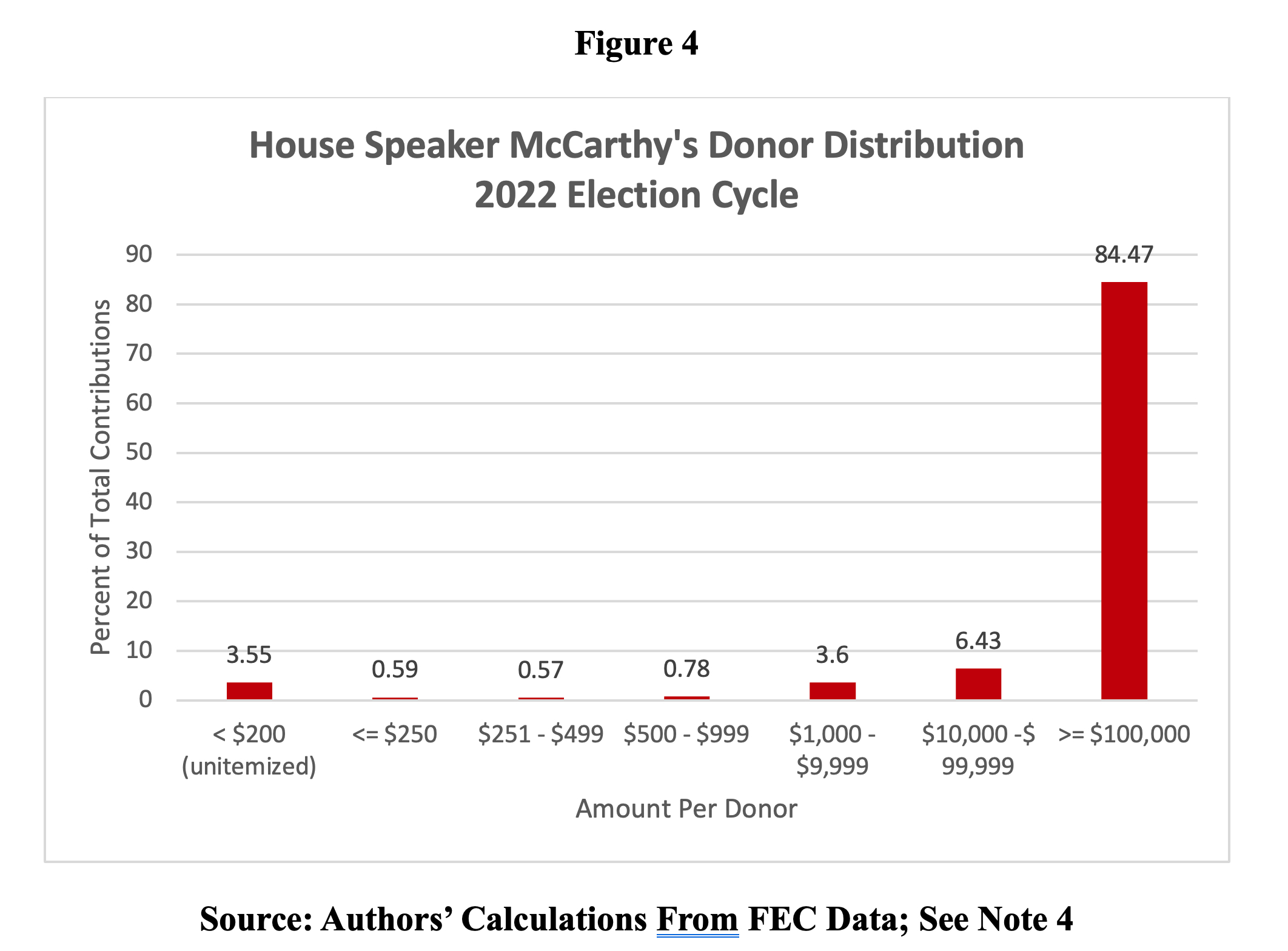Yves here. The deans of analysis of political spending in the US, Tom Ferguson, Paul Jorgenson, and Jie Chen, yet again demonstrate the overwhelming power of money in US politics, here as demonstrated in the debt ceiling kayfabe where the only possible conclusion was ordinary Americans and the poor would get the shaft. The only uncertainty was the details.
This post usefully includes also describes how Team Dem could have slipped the debt ceiling noose and chose not to. In terms of the so-called unconventional means, Ferguson et al ritually mention the 14th Amendment, which we’ve also brought up. However, Georgetown law professor Adam Levitin argued against trying to invoke the 14th Amendment to what he and fellow legal scholars see as a sounder approach. From Credit Slips:
Various commentators—and members of Congress—have suggested that the President “invoke the 14th Amendment” to declare the debt limit unconstitutional. They’re right to argue that the debt limit is unconstitutional, but the constitutional problem isn’t the 14th Amendment. Instead, it’s Article I of the Constitution, namely Congress’s power to enter into contracts. The tl;dr version is that Congress has a power to make binding commitments for the United States and the President is constitutionally obligated to perform those commitments. If the Treasury lacks the funds, then the President must borrow. No specific authorization is needed. Instead, it is implicit every time Congress appropriates funds to perform a binding commitment.
Relocating the constitutional problem with the debt limit isn’t merely an academic exercise. It has two implications.
First, it changes the nature of the legal debate and puts the administration on much, much firmer legal footing. The 14th Amendment argument is weak because it simply is not a prohibition on defaulting. It’s a prohibition on repudiation, and a default is not a repudiation. An Article I argument reframes the issue as being about the validity of the debt ceiling, rather than the ability to default. In other words, it goes to question of whether the House GOP has holdup power, rather than whether the administration is under some cryptic constitutional limitation that it must affirmatively “invoke.”
Second, it means that the President not only can, but must disregard the debt limit in order to fulfill his own constitutional duty to “Take Care” that the laws are faithfully executed. In other words, breaching the debt limit is not merely an option, but a legal requirement if Treasury is short of funds. Once Congress has appropriated funds, the President must carry out the authorized spending.
Now to the main event.
By Thomas Ferguson, Research Director, Professor Emeritus, University of Massachusetts, Boston; Paul Jorgensen, Associate Professor and Director of Environmental Studies, University of Texas Rio Grande Valley; and Jie Chen, University Statistician, University of Massachusetts. Originally published at the Institute of New Economic Thinking website
For months the White House proclaimed that it would not negotiate with Republicans over spending cuts in exchange for raising the debt ceiling. It insisted that it would accept only a clean lift of the borrowing limits. Then a few weeks ago, as prospects of default on the federal debt increasingly weighed on financial markets, the administration commenced negotiating.
Reactions were all over the political map. Some observers, mostly Republicans and what the press keeps hailing as “moderate” Democrats, professed happy surprise. Others were wary. Far-right Republicans doubted the possibilities for any deal they could accept.
Progressive Democrats, by contrast, recalled the many cases in which their leaders horse-traded with Republicans over spending programs while laying off tax cuts. They looked back in particular to President Obama’s famous attempt at a “grand bargain” with Republicans in 2011 – an episode in which then Vice President Joe Biden played a key role. That ratified major Bush-era tax cuts and severely impacted federal spending for years, likely contributing to the voter disaffection with Democrats that became dramatically evident in 2016.
The way the President chose to negotiate this time did nothing to ease such fears. A New York Times editorialobserved that “Democrats could have voted to eliminate the debt ceiling between the fall elections and January, when Republicans took control of the House, or they could have voted to provide the government with sufficient borrowing capacity until the next congressional elections in 2024. Instead, they chose this confrontation. Mr. Biden last fall labeled proposals to eliminate the debt ceiling ‘irresponsible.’ Other Democrats appeared to relish the politics of a fight. Now they are facing the consequences, which will most likely include the partial reversal of legislative victories won during Mr. Biden’s first two years.”
In public the White House conducted talks only with House Speaker McCarthy, leaving out Democrats in both houses. Meantime Senate Majority Leader Charles Schumer, whose political career has been coterminous with New York City’s ascent as the capital of world finance, made noises about wanting a bipartisan deal. He also ostentatiously failed to match Speaker McCarthy’s purely-for-show vote on a debt ceiling package with a Democratic counterpart that the public and the press could easily compare.
Whatever one thinks of their legal merits, it was also odd that Democratic leaders, including the President, played down prospects for cutting off outlandish Republican demands by resorting to unconventional ways out of the crisis, such as minting the fabled trillion-dollar platinum coin or invoking the 14th amendment.
No wonder Paul Krugman voiced skepticism about what was behind the White House’s calculations. “More and more it looks as if there never was a strategy beyond wishful thinking. I hope that I’m wrong about this…But right now I have a sick feeling about all of this. What were they thinking? How can they have been caught so off-guard by something that everyone who’s paying attention saw coming?”
The answer, we fear, is not edifying. The White House was not caught off guard. Like climate disaster, the crypto meltdowns, and the tremors now coursing through the American financial system, the high noon showdown between Republicans and Democrats over the debt ceiling was pre-programmed from the start.
The reason is simple: The dominating fact about American politics is its money-driven character. In our world, both major political parties are first of all bank accounts, which have to be filled for anything to happen. Voters can drive politics, but not easily. Unless they are prepared to invest very substantial time and effort into making the system work or organizations that they control will – such as unions or genuine grassroots political organizations – only political appeals that can be financed go live in the system, unless (of course) as helpful diversions.
The result is what we term the “linear model” of U.S. congressional elections: to a stunning degree outcomes of elections between major party candidates are directly proportional to the amounts of money each raises and spends. This dependence is a feature, not a bug; as we have quite elaborately shown, you can rule out the possibility that this relationship arises because money is mostly just following public opinion.[1]
Our graphs for money and politics in the House and Senate elections of 2022 look like all the other elections for which we have data.
First, the House.

The straight line shows that the percentage of money the Democratic candidates spend strongly predicts the percentage of the two party vote they receive. As we have explained many times before, the model covers only cases in which candidates of the two opposing major parties face each other. This is the norm, but the condition does exclude a few, so the total number of races is slightly less than 100%.[2]
In 2022, the Senate displayed precisely the same pattern to a degree that is, well, unusual, even for American politics. Yes, the number of Senate races is much smaller, so the results are less reliable. But the startingly tight fit should be an embarrassment for anyone concerned with democratic elections.[3]
Two technical notes: This year we did not find heavy spatial autocorrelation in the results; our statistics thus report results using ordinary least squares. And we have for a long time estimated Bayesian instrumental variable models as additional checks for endogeneity, based on a method originally developed by Peter Ebbes and analyzed at length by Irene Hueter (for details and references, see Ferguson, Jorgensen, and Chen, ”Linear Models”). That model shows virtually identical results.

Most of this money comes from wealthy donors and companies. It does not come from ordinary Americans. To why this is important for the borrowing limit debate it is helpful to look once more at a figure we have used before. This plots the percentage of large and small donations for key presidential candidates in 2016 and the Congressional leadership for that year.


The pattern it shows is unmistakable: one candidate, Senator Bernie Sanders, received 60% of his funds from small donors while garnering essentially no donations from rich Americans. The composition of Donald Trump’s money shows a striking shape we have often commented up: a barbell in which small donors do contribute some important money, but with most of his funds coming from the very richest Americans. By contrast, the lion’s share of everyone else’s funds come heavily from the superrich, including Hillary Clinton and the entire Congressional leadership, with Mitch McConnell a particularly striking case.
We are in the midst of calculating equivalent figures for 2020 and 2022; we do not believe they changed in any essential way. Sanders is still unpopular with big donors, Biden and Trump both depended in 2020 on big donations and so did Congressional leaders. In the case of McCarthy, however, we can show this is true to a preposterous extent.[4]
What all this implies for the borrowing limit debate is easily summarized. First, recall the fate of President Biden’s very modest proposals for new taxes as he entered office. While in many cases applauding his program, not a single major business organization in the United States was willing to support his suggestions.
At the time some commentators complained that these stances were inconsistent. But of course in the world of the investment theory of political parties, there is no contradiction between favoring major investments in defense or even climate change, but also wanting ordinary Americans to pay for them. That’s just money politics as usual.
Now the President is running for a second term. His fundraisers openly declare that the campaign intends to raise more than a billion dollars. In recent presidential elections, contributions from labor union amount to about 6 or 7% of total political spending. Money in the amounts the Biden campaign seeks can come only from one place: from the superrich and very affluent Americans. And in a Congress so dependent on money flows, relatively few representatives in either party are likely to do much more than posture when it comes to raising taxes. For Democrats in particular, the advantages of first actually passing programs, then standing back and reluctantly sustaining votes to take them back are a dream come true for squaring big money politics with folk appeal. That is the real reason Democratic party leaders go along with the debt ceiling ritual.
This is not to say that the compromise package that is now making headlines is guaranteed to have smooth sailing. Questions about the future policy on permits for oil and gas and green energy access to the electrical grid are already sparking protests. But the shift in the President’s priorities to promote not only sustainability but a renewed US role as a global exporter of liquid natural gas indicates that the final compromise over the Inflation Control Act embodied is clearly continuing. The interests in play here are immensely powerful on both sides. Some might balk or hold out for more. But that issue has no bearing on the cardinal point: that right now agreeing to limit federal borrowing while going through the motions on raising taxes will pay off handsomely for Democrats if hardly for many of their voters.
Notes
[1] For a detailed statistical analysis of the problem of “two-way causality” (or “endogeneity” in technical language) between money and votes and how we measure total spending in elections, see Thomas Ferguson, Paul Jorgensen, and Jie Chen, “How Money Drives US Congressional Elections: Linear Models of Money and Outcomes,” Structural Change and Economic Dynamics Vol 61 (2022), pp. 527-45. This final version of the paper contains several sections that were not included in the original INET working paper.
[2] Our statistics exclude the endpoints of zero and 100, since those are really auctions, not races – the winners are clear. See Ferguson, Jorgensen, and Chen, “Linear Models.”
[3] As was the case for the House, the summary statistics come from an ordinary least squares regression; tests for spatial correlation are negative, and the difference with a latent spatial instrumental regression is negligible.
[4] We generate our data for this essay as we usually do; see the data appendix to Ferguson, Jorgensen, and Chen, “Linear Model.” The figures here for McCarthy are compiled as follows. They are for the 2022 election cycle.
Candidate ID: H6CA22125
2022 State/District: CA20
Principal Campaign Committee ID: C00420935 (Kevin McCarthy for Congress)
Leadership Committee: C00428052 (Majority Committee PAC – McPAC)
Joint Committee: C00541011 (McCarthy Victory Fund)
*Joint Committee: C00484360 (Four Amigos)*
*This committee terminated in March 2021
Republican House Super PAC: C00504530 (Congressional Leadership Fund)
We obtained the unitemized contributions (less than $200 from donors) from the committee’s campaign finance summary files, located here: https://www.fec.gov/data/committees/. The unitemized totals are reproduced below:
C00420935: $10,300,576.91
C00428052: $470,035.93
C00541011: $251,769.41
C00484360: nothing reported
C00504530: $316.00
We obtained the donor amounts from the bulk itemized files, located here: https://www.fec.gov/data/browse-data/?tab=bulk-data.
Donors who contribute to joint committees have those contributions divided to the constituent members of the joint committee; therefore, if the original contributions to the joint committee are counted towards the donor’s total, then the divided portions should not be counted. If the original contribution is not counted towards the donor’s total, then the divided portions should be counted. It must be one or the other. With respect to McCarthy, here is what we did:
1. Original contributions to the McCarthy Victory Fund are counted; hence, any divided contributions going to McCarthy-led constituent committees are not counted.
2. McCarthy-led committees are constituent members of several other joint committees that are separate from the McCarthy Victory Fund. Contributions to those other joint committees are not necessarily contributions exclusively for McCarthy. In these cases, the subdivided contributions are counted.
Donors are individuals, companies, groups/non-profits, and Pacs. We do not count transfers.


Let’s go, Brandon!
Fundamentally, nothing will change.
True to his word….
The article mentions that earlier in the year the President said eliminating the debt ceiling would be, “Irresponsible.” The debt ceiling has been raised 69 times since 1960 or so I read yesterday. The illogic of the president’s remark set beside the historical record … and his many votes while a member of house and senate to raise said ceiling … begs the question, was the president illogical or irresponsible as he made those many votes.
The plain fact is that the notion of a debt ceiling is an exercise in political theater and an invitation for one party or the other to use it as a vehicle for political extortion and virtue signaling. What a bunch of venal clowns.
Debt ceiling kabuki does provide a superficially plausible impression that the nation’s elected officials are actually making economic policy. The reality for the past 45 years is that economic policy–such as it is–is in fact made by the Federal Reserve. It’s crucial for the political system’s remaining shreds of legitimacy that we overlook this fact.
The whole thing strikes me as some sort of political theater where both parties do this ritual dance in order to pass highly unpopular legislation together. And when they are called out about it afterwards, they can turn around and claim that they were forced to do so because of the “debt ceiling”. The Roe vs Wade was more of the same where nothing was done for half a century as Republicans were able to raise funds of it to repeal it and Democrats were raising funds to defend it – until they didn’t.
Agreed. Nicely summed up by the authors:
The concrete material benefits of the SNAP program, for example, extend to some 43 million low-income Americans. As reported earlier this month by the Center for Public Integrity, “[A] growing body of research shows that adding more work rules to SNAP will likely have zero impact on employment and will instead kick out a large number of poor people from the program.”
Dark fantasy photo op: Biden & McCarthy stand in front of an encampment of the unhoused, giving the thumbs up under the banner “Mission Accomplished.”
What’s going through their brains is that this will reduce inflation. As somebody else said in a different thread, just wait til people have to start paying student debt again.
Compare to how the Tory leadership in UK is prepared to do price controls on bread and milk to control inflation.
What’s ironic is that we’re on path to recession/depression regardless.
“The tl;dr version is that Congress has a power to make binding commitments for the United States and the President is constitutionally obligated to perform those commitments. If the Treasury lacks the funds, then the President must borrow. No specific authorization is needed. Instead, it is implicit every time Congress appropriates funds to perform a binding commitment…”
Careful now…In the future, wouldn’t want this to lead to loans that have to be paid back in another currency.
Really, Krugman? I can only imagine how wealthy he’s gotten carrying liberal Democrat water. I doubt much he felt “sick” at all, given the personal economic impact to him and his is zero.
I don’t find this article as persuasive as other articles by Thomas Ferguson, et al., that have been cross-posted here previously. I don’t dispute the “overwhelming power of money in US politics” or that “[t]he dominating fact about American politics is its money-driven character.” However, I’m not convinced that that is a logically sufficient explanation of the behavior of either the Democrats or the Republicans in this situation. To say money explains everything can allow you to sidestep explaining the role money plays in one particular situation.
The authors argue that “the high noon showdown between Republicans and Democrats over the debt ceiling was pre-programmed from the start.” They note that Schumer never put forward a bill to raise the debt ceiling that could then have been the basis for negotiation against the bill the House had passed. Does that reflect Schumer’s following the “pre-programmed” script — or simply his tactical incompetence?
A technical point: The authors’ Figure 3, “Size of Contributions: Profiles of American Political Leaders, 2016 Cycle,” is very blurry, both here and at its source.
The democrats had two years to get rid of the debt ceiling or increasing it enough to last years. They could even increased the debt ceiling after losing the house. The republicans used the debt ceiling under Obama.
The amount of incompetence needed to get into this position is ridiculously large. Notice how the democrats establishment has been shrewd when it comes to shiving the left, and the explanation that they are just that stupid starts to come apart.
Now notice how Biden has been for cutting social spending to balance the budget for decades, and pre-programmed looks like the parsimonious explanation.
It’s intentional. See this article. I quoted Biden speaking to “hopes and intentions” about the 14th amendment sometime down the road “that’s another day”. But read the rest of the article where it’s various dept heads as well as outside water carriers explaining why that “day” is not going to happen.
14th Amendment Questions Linger Despite Debt Limit Deal
There is a term I picked up … “kicking a puppy”
That’s a good description of the debt ceiling deal. Rather than trying anything hard or even moderately weak, to reduce spending, they took it out on the 49-54 year olds with no dependents on disability.
Yeah, that’s kicking a puppy.
Any money saved is probably equivalent to a few wunderwaffen currently being turned into smoldering rust on the steppes.
Claude Rains, all over again, “I’m shocked,…”
I don’t need a f..ing graph to show that money dictates elections and Congressional actions. If these crooks in DC (in all branches of govt. acted in the interst of the people, this kabuki theater won’t be repeated time after time. Elections are always about how the other candidate would do such and such – nothing about what the candidate plans to do. There is no accountability in any of the three crooked branches. I wish there was a way to fire all these guys. The ever surging defense budget is always a sacred cow. What a joke!
Hey Brandon, how about the option of doing nothing?
Proving once again that the Dems are best at passing a Republican agenda.
american politics has always been drenched in money. however, that changed in the 1990’s. when bill clinton took a meat ax to the new deal and americas civil society, a grateful wall street and the beginnings of the world wide oligarchy from free trade, poured money from the heavens down on the bill clinton democrats, putting the idiot newt boys at a disadvantage, that newt himself helped set up.
now bill clinton roams the world with hundreds of millions of dollars at his finger tips, looking for poor vulnerable powerless people to abuse and exploit, and the idiot newt does late night infomercials.
the only thing left the republicans could do to get back parity, was citizens united.
so till the soft left figures out what went wrong in the 1990’s, and quite putting almost all the blame on reagan, when in fact, some was carter, but the over whelming damages was done bill clinton, then obama bailed those policies out, and we got trump.
so we are at almost a clock work orange scenario in many major blue cities, soon the mad max scenario will be coming to rural areas, where in rural areas a city of maybe 100,000 or so will get a garrison of soldiers, and smaller cities, towns, and hamlets will get droned and missile strikes to discipline the deplorable.
if the soft left does not want a Moa/stalin, hitler type, then they better have a truth commission, not run by politicians, or free trade run NGO’s, but by real naked capitalism types.
then forget about the democratic party. they need to go away.